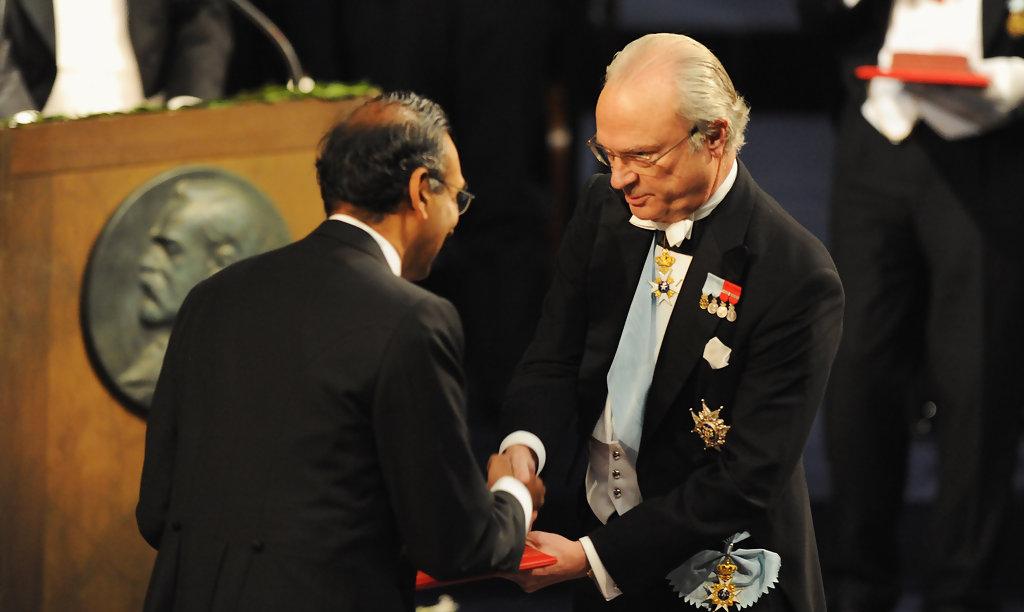According to the will of swedish chemist Alfred Nobel, the Nobel Prize was awarded in 1901. This most prestigious international award includes five fields: physics, chemistry, physiology or medicine, literature, and equality, and in 1968 the Economics Prize was added.
As of 2020, the United States is the country with the most Nobel Prize winners, with a total of 396 people, followed by the United Kingdom, Germany, France and Sweden. Seventh in the world is Japan, with a total of 29 people who have won Nobel Prizes, ranking first in Asia.

The second place in Asia is India, with a total of 9 people who have won nobel prizes, including 2 citizens of British India, 3 citizens of India after independence, and 4 winners born in India but who were citizens of other countries at the time of the award.
<h1 class="pgc-h-arrow-right" data-track="4" > humanities</h1>
The first Indian to win the Nobel Prize was Robindranath Tagore, who was awarded the Prize for Literature in 1913. At the age of 8, he began to write poetry, at the age of 12 he wrote a screenplay, and at the age of 15 he published his first long poem", "Wildflower", Tagore has a pivotal position in the world poetry world.
The world kissed me with pain and asked me to sing in return. - "The Asuka Collection"
The award speech of that year read: "Because he created a sharp, fresh and beautiful poem with great skill, he also expressed it in English himself, turning poetic thoughts into Western literary components." ”
Tagore (middle)
Another well-known Indian Nobel laureate is Mother Teresa, who received the Peace Prize in 1979 "in gratitude for her help to suffering humanity".
We know that Mother Teresa, who was originally An Albanian, made a missionary mission at the age of 12 to work for the poor.
In 1929, at the age of 19, Mother Teresa came to India and spent most of her life in this South Asian country. At that time, in India, the gap between rich and poor was very large, and the streets were full of helpless lepers, beggars, and street children.
In India, Mother Teresa built shelters (dying homes) to help the poor leave the world with dignity. Some of the poor, after careful care by the nuns, recovered their health and learned the skills to earn a living.
Portrait of Mother Teresa
Another Indian Peace Prize winner is Kailasi Satayati, who received the award in 2014 in recognition of his "Save Childhood Campaign."
Since the 1990s, Satyati and his organization have been working to protect children's rights, freeing more than 90,000 Indian children from all forms of slavery and helping to integrate rehabilitation and education.
After Satyati won the Nobel Prize, India began a debate on whether to legislate against child labor. Some argue that most countries prohibit the existence of child labour, and india should do the same. However, it has also been argued that a ban on child labour could divert such employment relationships underground, further worsening the working conditions of child labour.
Satayati (second from left)
<h1 class="pgc-h-arrow-right" data-track="15" > the natural sciences</h1>
In the field of natural sciences, Chandrasekala Raman was India's first Nobel Laureate and was awarded the Prize in Physics in 1930 in recognition of his pioneering work in light scattering.
India also has a Nobel Laureate in Physics named Subramaniyan Chandrasekhar, who is Raman's nephew. Chandrasekhar's main focus is astrophysics, and he has an in-depth study of the structure and evolution of stars, winning the prize in 1983.
It is worth noting that Chandrasekhar is the teacher of two Chinese Nobel laureates Yang Zhenning and Li Zhengdao.
Subramanian Chandrasekhar
In physiology or medicine, India also has a Nobel laureate named Hal Ghibing Korana, who cracked the genetic code and its role in protein synthesis.
In addition, India has a nobel prize in chemistry, named Venkatraman Lamarishnan, whose research focuses on the high fidelity of mRNA proteins in ribosomes and their balance with the speed of protein synthesis, which won the prize in 2009.
Venkatraman Lamarishnan
In the field of economics, India has two Nobel laureates, Amartya Kumar Sen and Abbashi Banaji. The former won the prize in 1998 in recognition of his contributions to welfare economics, while the latter won the prize in 2019 "in recognition of his experimental approach to alleviating global poverty."